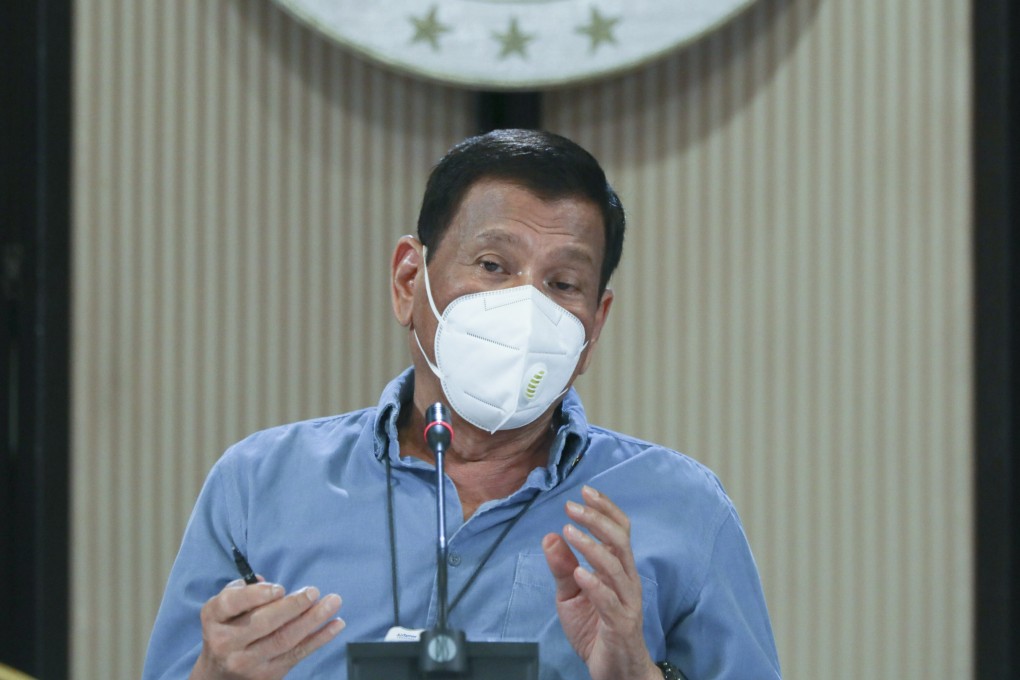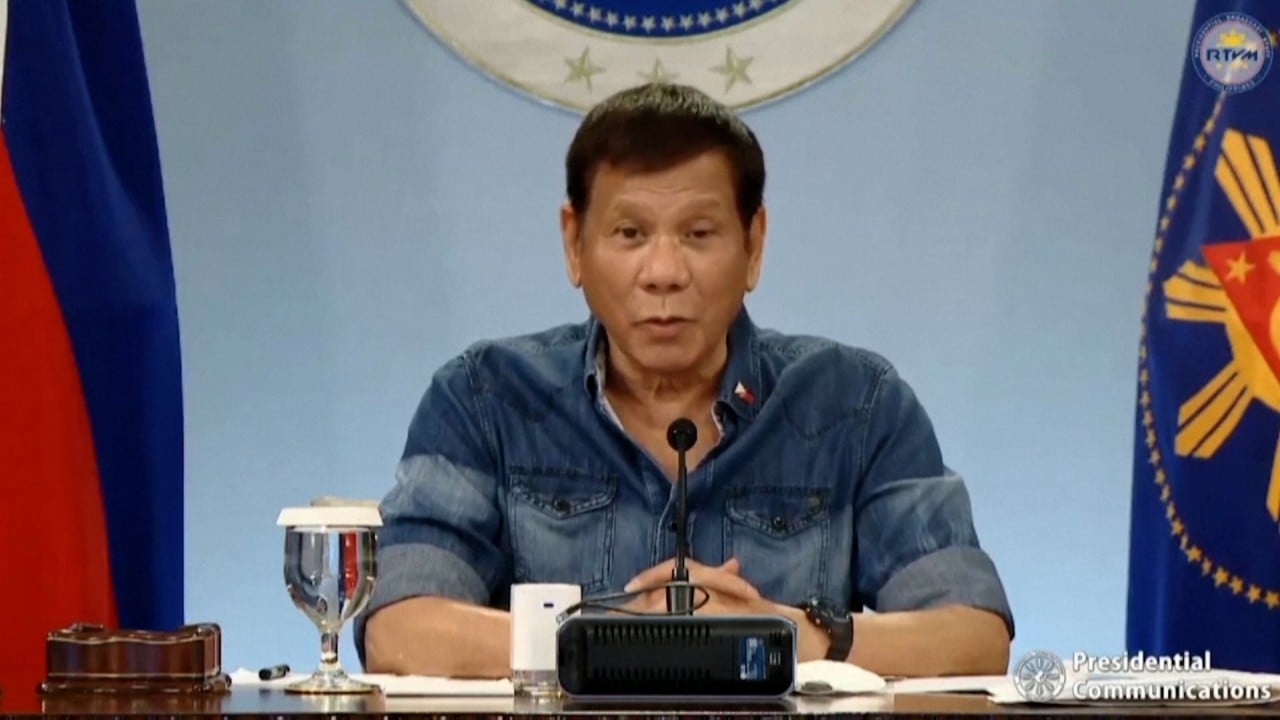Coronavirus: Rodrigo Duterte reappears amid anger over surging cases, lack of hospital beds in Philippines
- The president had not been seen for two weeks, prompting speculation over his health
- Filipinos have taken to social media to express frustration at the government’s Covid-19 response, with the country the worst-hit in Southeast Asia

Duterte appeared in a pre-recorded “Talk to the People” address televised late on Monday evening following speculation about his health or possible death. He had not been seen since his former aide-turned senator Christopher “Bong” Go released a video marking his 76th birthday on March 28.
His previous weekly address was postponed twice and to allay fears, Go on Saturday released videos of him biking and playing golf in the darkness.
“If you want me to die early, you must pray harder. What you want to happen is to see me go,” the president said.
Duterte’s voice at times turned hoarse, and he struggled to find words. Instead of explaining his long absence, he said: “When I disappeared for several days, I did it on purpose. The more you rummage about for me like a child, and the more you mock me, the more I’m filled with zest.”
